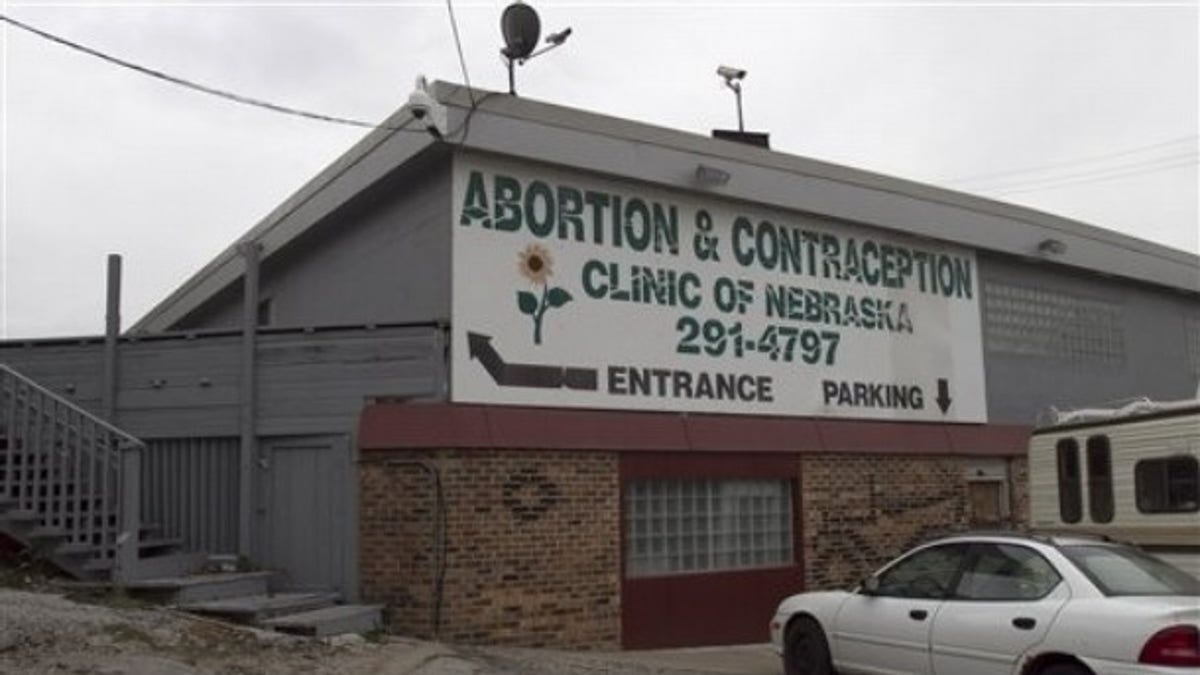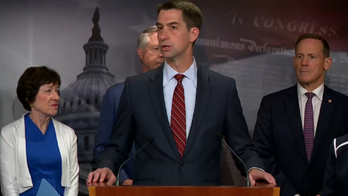
The abortion and contraception clinic operated by Dr. LeRoy Carhart, is seen in Bellevue, Neb. , Wednesday, Nov. 10, 2010. (AP)
The sweeping Republican victories in statewide races across the country have emboldened abortion opponents seeking to gain an upper hand in the decades-long battle over the right to terminate pregnancies.
Abortion opponents are pushing states, particularly those where Republicans won big in November, to adopt legislation similar to a new Nebraska law that restricts late-term procedures based on the disputed notion that fetuses can feel pain after 20 weeks.
National Right to Life, the nation's largest anti-abortion group, held a strategy conference this week in Arlington, Va., to offer its state affiliates guidance for the 2011 legislative session.
"It's the same strategy we've always had," Mary Spaulding Balch, the legislative director for National Right to Life, told FoxNews.com. She explained that the state affiliates go to legislatures to offer their list priority bills they want passed that year.
"We've been doing this for years," she said. "For me, the only thing that will change is the number of bill that will pass."
Indiana, Iowa and Kentucky lawmakers have already started drafting bills similar to Nebraska's law, and abortion opponents are pushing lawmakers in Kansas, Maryland and Oklahoma to do the same.
Nebraska's law, which took effect Oct. 15, outlaws abortion after 20 weeks of pregnancy. It is a departure from the standard of viability, established by the 1973 landmark ruling in Roe v. Wade, which allows states to limit abortions in cases where there's a viable chance the fetus could survive outside of the womb, generally considered to be between 22 and 24 weeks.
Dr. LeRoy Carhart, one of the nation's few late-term abortion providers who runs a clinic near Omaha, and his backer, the New York City-based Center for Reproductive Rights, have threatened to challenge the Nebraska law in court.
Dionne Scott, a spokeswoman for the center, said it would file a challenge "when the circumstances are appropriate." But losing such a challenge would risk having the court throw away the viability standard in favor of a pain standard, which could be further lowered should it be proven fetuses can feel pain earlier than 20 weeks.
While some doctors contend that fetuses can feel pain after 20 weeks, the American Congress of Obstetricians and Gynecologists says it knows of no legitimate evidence showing a fetus can ever experience pain. It says a fetus' brain begins its final stage of development between the 20th and 40th weeks of pregnancy, and that certain hormones that develop in the final trimester also must be present for it to feel pain. It's not known exactly when those hormones form.
Facing limitations in Nebraska, Carhart recently announced he was expanding his practice across the state line to Council Bluffs, Iowa, and in Germantown, Md., and Indianapolis -- locations with less-restrictive state laws.
But lawmakers in Iowa and Indiana -- wary of Carhart and hoping to play off strong Republican gains in their statehouses -- are already drafting fetal pain legislation.
Hundreds of abortion opponents protested this week outside Carhart's new clinic in Maryland. Republican state Delegate Donald H. Dwyer, an anti-abortion leader in the Democrat-controlled Maryland General Assembly, said that amid heightened awareness prompted by Carhart's plans, he will organize like-minded legislators to propose bills next year tightening abortion-clinic regulations.
While not mentioning fetal pain specifically, Dwyer said: "We're going to look at all options to address the issue of late-term abortions in this state. I think it's a travesty that we continue to allow that and that we've never addressed it legislatively."
The Associated Press contributed to this report.




